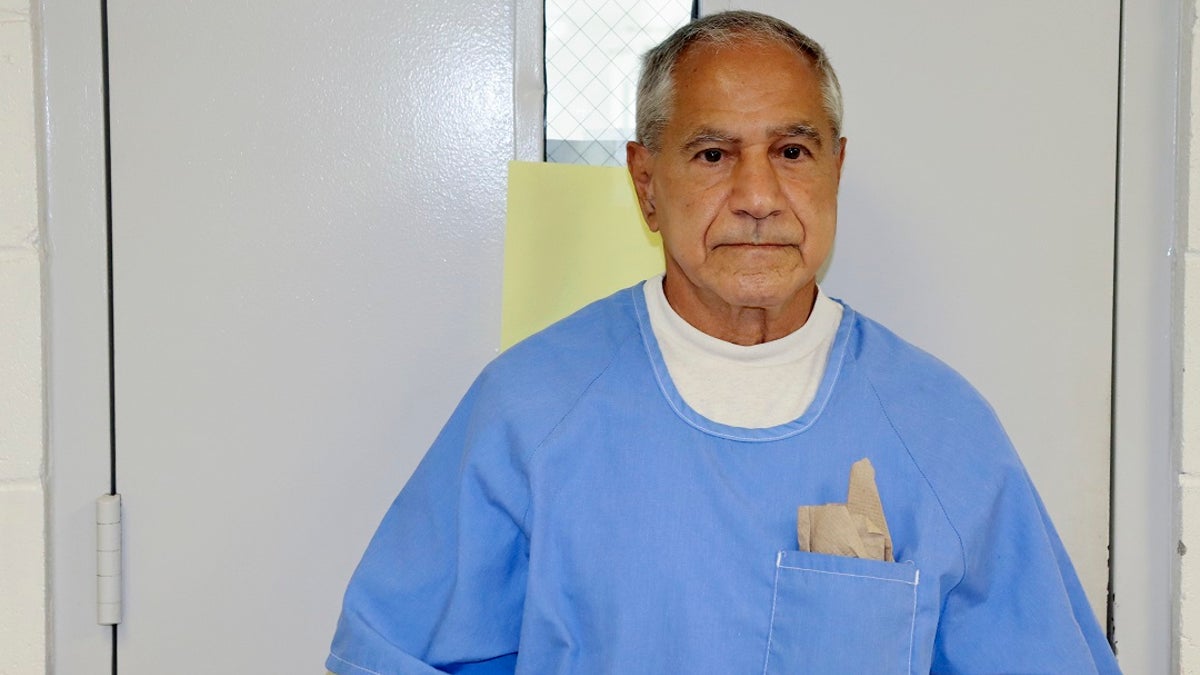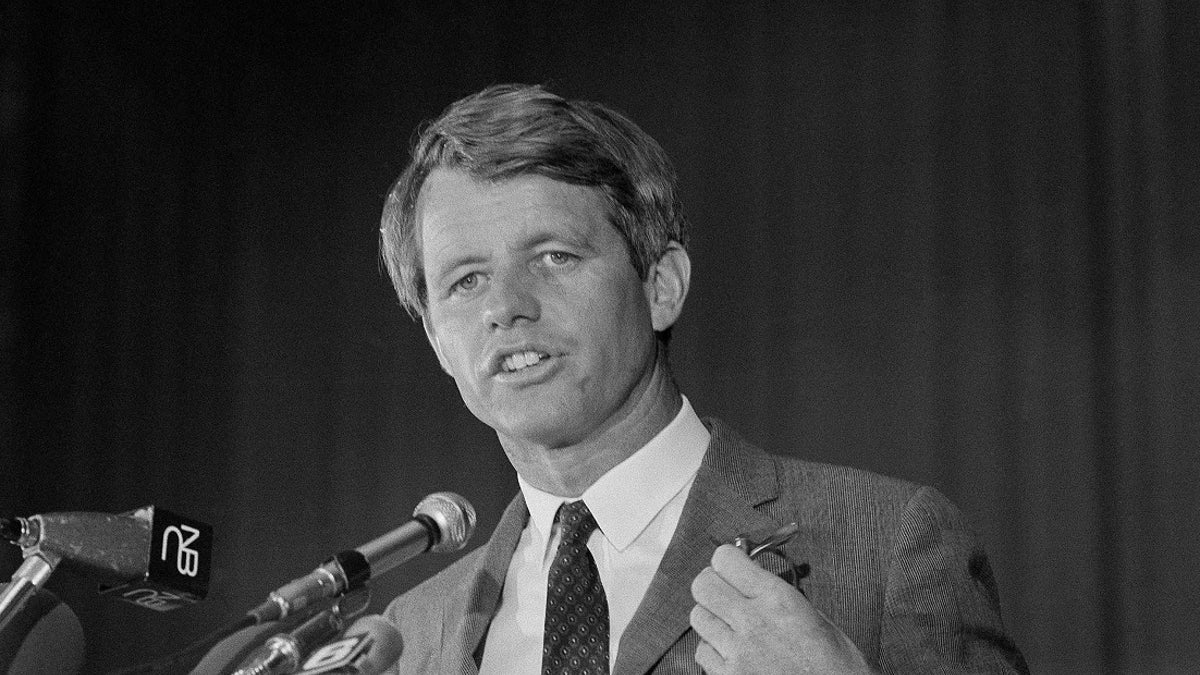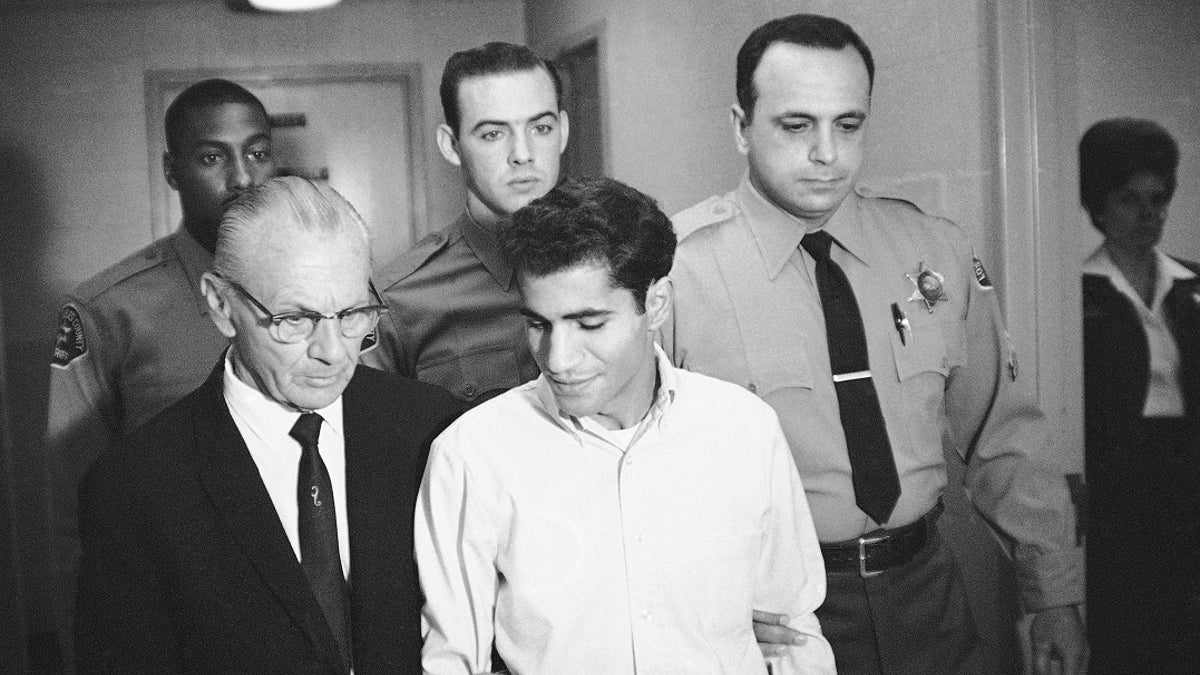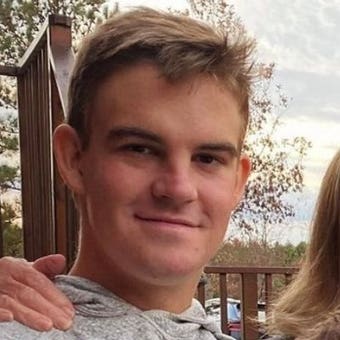RFK's assassin, Sirhan Sirhan, granted parole
RFK's son, Fox News correspondent Douglas Kennedy, supported parole for his father's killer. Fox News' Christina Coleman reports.
California Gov. Gavin Newsom rejected the release of Robert F. Kennedy assassin Sirhan Sirhan from prison, saying Sirhan still poses an unreasonable threat to public safety and could incite more political violence if he's let out of prison.
"Mr. Sirhan’s assassination of Senator Kennedy is among the most notorious crimes in American history," Newsom wrote in his decision.
"Mr. Sirhan killed Senator Kennedy during a dark season of political assassinations, just nine weeks after Dr. Martin Luther King, Jr.’s murder and four and a half years after the murder of Senator Kennedy’s brother, President John F. Kennedy."

In this image provided by the California Department of Corrections and Rehabilitation, Sirhan Sirhan arrives for a parole hearing on Friday in San Diego. (California Department of Corrections and Rehabilitation via AP)
A two-person panel of parole commissioners recommended in August that Sirhan be released, noting that he was 24 when he assassinated RFK and is 77 now.
"We think that you have grown," Parole Board Commissioner Robert Barton said at the August hearing, noting that Sirhan had enrolled in anger management classes and Alcoholics Anonymous meetings.
ROBERT KENNEDY'S ASSASSIN SIRHAN SIRHAN GRANTED PAROLE BY CALIFORNIA BOARD
Sirhan, a Palestinian Christian from Jordan, has said he was angry at Kennedy for his support of Israel and had been drinking alcohol before the shooting, but still has not taken complete responsibility for the assassination.
"Sen. Kennedy was the hope of the world... and I harmed all of them and it pains me to experience that, the knowledge for such a horrible deed, if I did in fact do that," Sirhan said.

In this May 9, 1968 file photo, Sen. Robert F. Kennedy speaks to the delegates of the United Auto Workers at a convention hall in Atlantic City, N.J. (AP Photo, File)
Six of Kennedy's nine surviving children praised Newsom's decision to reject Sirhan's release.
"The political passions that motivated this inmate’s act still simmer today, and his refusal to admit the truth makes it impossible to conclude that he has overcome the evil that boiled over 53 years ago," the siblings said in a joint statement Tuesday.
SON OF ROBERT KENNEDY SPEAKS OUT ON POTENTIAL RELEASE OF HIS FATHER'S KILLER
Two of RFK's children – Douglas Kennedy and Robert F. Kennedy Jr. – supported the panel's recommendation to release Sirhan.
The Los Angeles County District Attorney's Office did not object to Sirhan's parole due to George Gascón’s policy that the prosecution's role ends at sentencing.

In this June 28, 1968, photo, Sirhan Bishara Sirhan is escorted by his attorney, Russell E. Parsons from Los Angeles county jail chapel to enter plea to charge of murder in Los Angeles. (AP Photo/George Brich, File)
Sirhan shot RFK, a United States Senator from New York, twice in the back and once in the head on June 5, 1968, at the Ambassador Hotel in Los Angeles, moments after RFK delivered a victory speech in California’s Democratic presidential primary.
"Mr. Sirhan shot Senator Kennedy in front of news cameras, which subjected the Kennedy family and American public to a ubiquitous video loop of Senator Kennedy’s violent death and his wife’s anguish at his side," Newsom, who has referred to Kennedy as a political hero, wrote on Thursday.
CLICK HERE TO GET THE FOX NEWS APP
Sirhan was sentenced to death in 1969 following a highly publicized trial, but his sentence was commuted to life three years later when the California Supreme Court temporarily outlawed capital punishment.
The Associated Press contributed to this report.






















